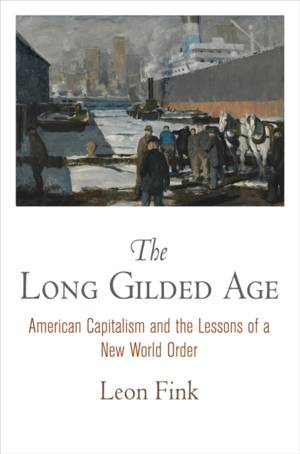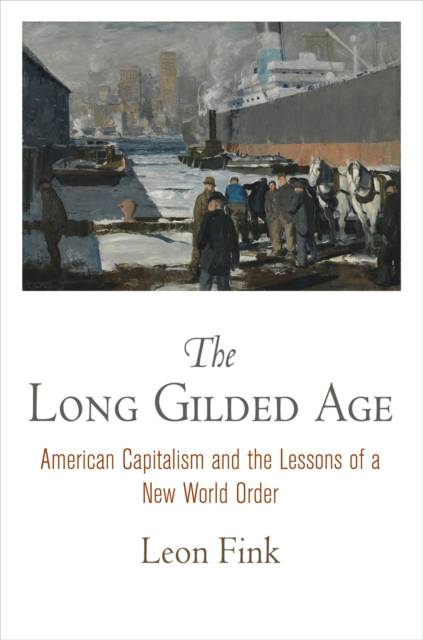
Bedankt voor het vertrouwen het afgelopen jaar! Om jou te bedanken bieden we GRATIS verzending (in België) aan op alles gedurende de hele maand januari.
- Afhalen na 1 uur in een winkel met voorraad
- Gratis thuislevering in België
- Ruim aanbod met 7 miljoen producten
Bedankt voor het vertrouwen het afgelopen jaar! Om jou te bedanken bieden we GRATIS verzending (in België) aan op alles gedurende de hele maand januari.
- Afhalen na 1 uur in een winkel met voorraad
- Gratis thuislevering in België
- Ruim aanbod met 7 miljoen producten
Zoeken
€ 51,95
+ 103 punten
Omschrijving
From the end of the nineteenth century through the first decades of the twentieth, the United States experienced unprecedented structural change. Advances in communication and manufacturing technology brought about a revolution for major industries such as railroads, coal, and steel. The still-growing nation established economic, political, and cultural entanglements with forces overseas. Local strikes in manufacturing, urban transit, and construction placed labor issues front and center in political campaigns, legislative corridors, church pulpits, and newspapers of the era.
The Long Gilded Age considers the interlocking roles of politics, labor, and internationalism in the ideologies and institutions that emerged at the turn of the twentieth century. Presenting a new twist on central themes of American labor and working-class history, Leon Fink examines how the American conceptualization of free labor played out in iconic industrial strikes, and how "freedom" in the workplace became overwhelmingly tilted toward individual property rights at the expense of larger community standards. He investigates the legal and intellectual centers of progressive thought, situating American policy actions within an international context. In particular, he traces the development of American socialism, which appealed to a young generation by virtue of its very un-American roots and influences. The Long Gilded Age offers both a transnational and comparative look at a formative era in American political development, placing this tumultuous period within a worldwide confrontation between the capitalist marketplace and social transformation.Specificaties
Betrokkenen
- Auteur(s):
- Uitgeverij:
Inhoud
- Aantal bladzijden:
- 216
- Taal:
- Engels
- Reeks:
Eigenschappen
- Productcode (EAN):
- 9780812224139
- Verschijningsdatum:
- 9/02/2018
- Uitvoering:
- Paperback
- Formaat:
- Trade paperback (VS)
- Afmetingen:
- 150 mm x 226 mm
- Gewicht:
- 272 g

Alleen bij Standaard Boekhandel
+ 103 punten op je klantenkaart van Standaard Boekhandel
Beoordelingen
We publiceren alleen reviews die voldoen aan de voorwaarden voor reviews. Bekijk onze voorwaarden voor reviews.












